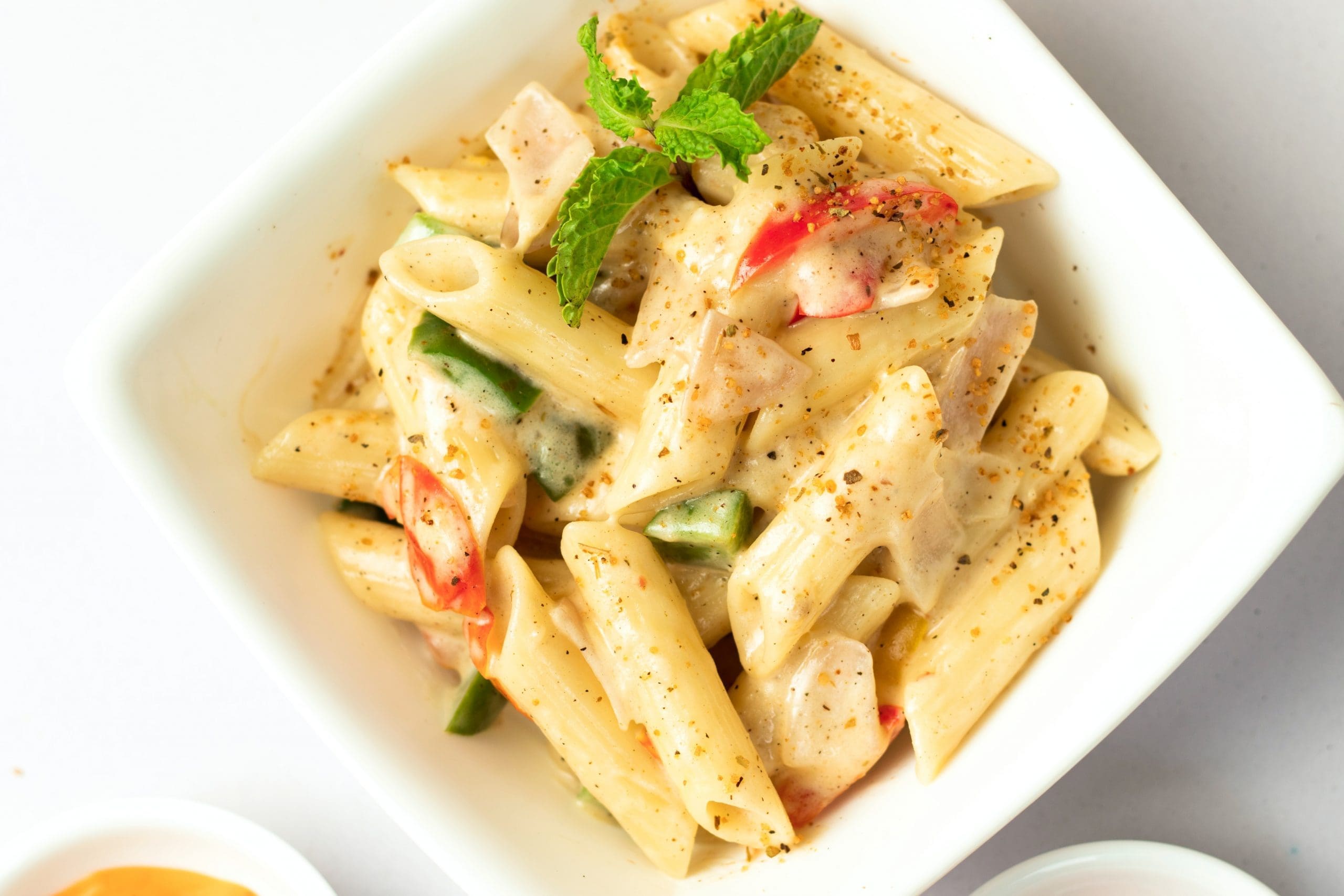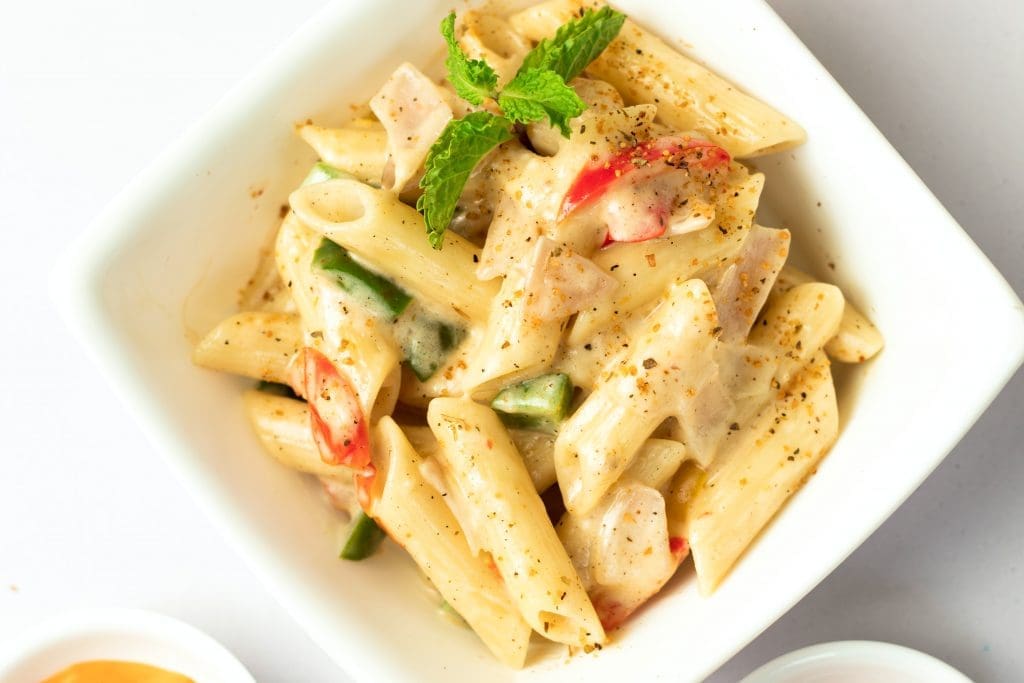

If there’s one universal truth in food, it’s that pasta is delicious. Whether it’s homemade or from a box, whole grain or gluten-free, rigatoni or bucatini, we can’t deny how good it feels to dig into a bowl of noodles. At the same time, low-carbohydrate diets are all the rage — you can’t be on the internet for more than a few minutes before coming across “keto” this or “Paleo” that.

But what do we know about how carbohydrate sources like pasta impact our weight and health? Is a bowl of spaghetti a recipe for packing on the pounds? A recent paper published in the British Medical Journal set out to measure how eating pasta as part of a low-glycemic index (GI) diet affected body weight, body mass index (BMI) and other measurements associated with obesity. In particular, they were interested in determining if pasta consumption caused weight gain.
KEY POINTS OF THE STUDY
Researchers conducted a systematic review and meta-analysis of nearly 2,500 people (mostly middle-aged and overweight or obese, some with diabetes). They found that among the 32 trials in which participants consumed low-GI diets that included pasta, participants on average did not gain weight. In fact, eating pasta as part of a low-GI diet was associated with a small amount of weight loss (about 1.4 pounds) compared to higher-GI diets.
Similarly, participants demonstrated small reductions in BMI, though no changes were seen in markers of abdominal obesity, a known risk factor for cardiovascular disease and diabetes. While only 11 of the 32 studies reported exactly how much pasta participants ate during the study, for those that did, pasta consumption averaged out to be 3.3 servings per week (at one-half cup per serving).
As you might imagine, any study showing an association between comfort-food carbs and weight loss gained significant traction in the media. Most outlets heralded the study results with titles like, “Science Finally Says That Eating Pasta Could Help You Lose Weight” and “Eating Pasta was Just Linked to Weight Loss, Not Making You Fat”. But do these headlines accurately describe the study? Let’s take a closer look.
WHAT IS THE ‘GLYCEMIC INDEX’?
The glycemic index (GI) is a measure of carbohydrate quality — specifically, how blood sugar levels rise two hours after eating 50 grams of available carbohydrates that the body can absorb. Foods are ranked on a scale of 0 to 100, with pure glucose given a value of 100.
Carbohydrate-containing foods that are broken down and absorbed quickly, like simple sugars and refined carbohydrates, cause a quicker rise in blood glucose and therefore have a higher GI score. On the other hand, foods with more fiber, fat and protein generally result in a slower rise in blood glucose and thus have a lower GI score. The GI is mainly used in research settings rather than in the general population, because its relationship with health outcomes is still being investigated.
Although pasta is high in carbohydrates, it has a surprisingly low GI (usually between 30 to 60) because of the interaction between starch and protein molecules in the pasta dough. The GI of pasta is also impacted by how its prepared, with al dente resulting in a lower GI.
PUTTING THE FINDINGS INTO CONTEXT
The study’s methodology and design were solid — they clearly explained what they set out to measure. Authors also took care to highlight the fact that pasta was eaten as part of a low-GI diet, which also typically involves eating fruits, vegetables, whole grains, healthy fats and protein — that is, a healthy eating pattern overall. Study authors were also quick to point out that more research is needed to determine if similar results would be found with pasta as part of other dietary patterns, such as a vegetarian or Mediterranean diet, two key eating patterns outlined in the 2015-2020 Dietary Guidelines for Americans.
One major point to remember is that in the studies that specifically measured pasta intake, participants ate an average of less than 2 cups of pasta per week, an amount of pasta that is less than some might eat in one meal. As study co-author John Sievenpiper explained to Shape magazine, “I wouldn’t want someone to take away that pasta doesn’t cause weight gain. … If you consume too much pasta, it will be like if you consume too much of anything.” Keeping portion sizes in check is critical for weight control. By eating a smaller amount of something we love, it’s possible to indulge in the foods we’re fond of without undermining our health goals.
In addition, this research did not analyze how much a participant’s diet changed from their usual intake. It’s possible that a person may have been eating less healthfully before they started the study, changed their usual eating patterns because they were instructed to, or subconsciously changed the way they ate (or what they reported eating) because their dietary intake was being recorded, something known as social desirability bias.
And finally, most of the studies included in the review were about three months long. As the authors pointed out, this isn’t long enough to demonstrate if there are long-term, sustainable benefits of eating pasta when it comes to weight loss. This would take more studies that are much longer in duration — a logistical and expensive challenge for randomized controlled trials.
The takeaway good news is that eating pasta regularly and maintaining a healthy weight don’t have to exist on opposite ends of the health spectrum. Pasta can fit within an overall healthy, well-balanced diet that includes lots of fruits and vegetables, whole grains, fiber, healthy oils and lean protein sources. If you’re interested in learning more, check out our article on some other healthy attributes of pasta and brush up on how to build your own pasta meal.
This blog includes contributions by Kris Sollid, RD, and Megan Meyer, PhD.
Source Link – http://www.foodinsight.org/can-eating-pasta-help-you-lose-weight-study-british-medical-journal



